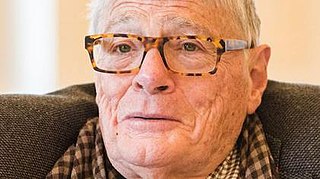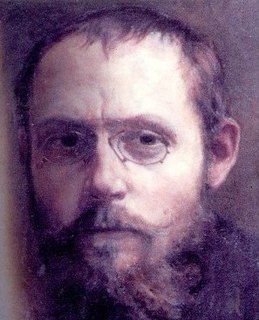A Quote by Jeffrey Tate
I don't like to hurry. I'm not a conductor of the fast, fiery romantic type. I prefer Bruckner, with the sincerity of his musical language and the huge time spans in which his ideas develop, to Mahler, with his hysteria and self-indulgence.
Related Quotes
Man is more than his environment. It is from the innate quality of the Spirit in him, his inner storehouse, that he draws those ideas, his intuitions, which unify his perceptions of the external world instantaneously with a value which is qualitative and not quantitative, and which he embodies in the works of his culture - those achievements which belong not only to one particular time but to all times, and mark the path of his upward progress.
place where man laughs, sings, picks flowers, chases butterflies and pets birds, makes love with maidens, and plays with children. Here he spontaneously reveals his nature, the base as well as the noble. Here also he buries his sorrows and difficulties and cherishes his ideals and hopes. It is in the garden that men discover themselves. Indeed one discovers not only his real self but also his ideal self?he returns to his youth. Inevitably the garden is made the scene of man's merriment, escapades, romantic abandonment, spiritual awakening or the perfection of his finer self.
The necessity for struggle is one of the clever devices through which nature forces individuals to expand, develop, progress, and become strong through resistance. . .We are forced to recognize that this great universal necessity for struggle must have a definite and useful purpose. That purpose is to force the individual to sharpen his wits, arouse his enthusiasm, build up his spirit of faith, gain definiteness of purpose, develop his power of will, and inspire his faculty of imagination to give him new uses for old ideas and concepts. . .
Depending on the year or the therapist he was seeing, he'd learned to ascribe just about every facet of his character as a psychological reaction to his parents' fighting: his laziness, his overachieving, his tendency to isolate, his tendency to seduce, his hypochondria, his sense of invulnerability, his self-loathing, his narcissism.
Symbols are specific acts or figures, while myths develop and elaborate these symbols into a story which contains characters and several episodes. The myth is thus more inclusive. But both symbol and myth have the same function psychologically; they are man's way of expressing the quintessence of his experience - his way of seeing his life, his self-image and his relations to the world of his fellow men and of nature - in a total figure which at the same moment carries the vital meaning of this experience.
I urge pupils when studying a work and in order to master its most important aspic, the rhythmic structure, or the ordering of the time process, to do just what a conductor does with the score: to place music on the desk and to conduct the work from beginning to end as if it were played by someone else, an imaginary pianist with the conductor trying to impress him with his will, his tempo first of all, plus all the details of his performance.
By the end of Pop's life I wanted to give something back and when I came on board as his musical director he needed me. I wasn't the greatest conductor of the orchestra, but I was hired to conduct Frank Sinatra. He was slowing down, his memory wasn't what it had been. But his audience never stopped loving him. He had teleprompters.
The master in the art of living makes little distinction between his work and his play, his labor and his leisure, his mind and his body, his information and his recreation, his love and his religion. He hardly knows which is which. He simply pursues his vision of excellence at whatever he does, leaving others to decide whether he is working or playing. To him he's always doing both.
Presenting Aschenbach as a composer - based on Mahler - leads to some dreadful scenes (especially those in which Aschenbach is berated by his student), and it surely distorts the character Mann created. Yet, we know that Mann's novella was based on a holiday in Venice he took with his wife and brother, and that while he was there he followed the reports in the German newspapers, describing the dying Mahler's progress as he returned from New York to Vienna.




































